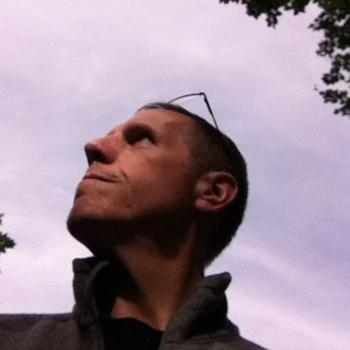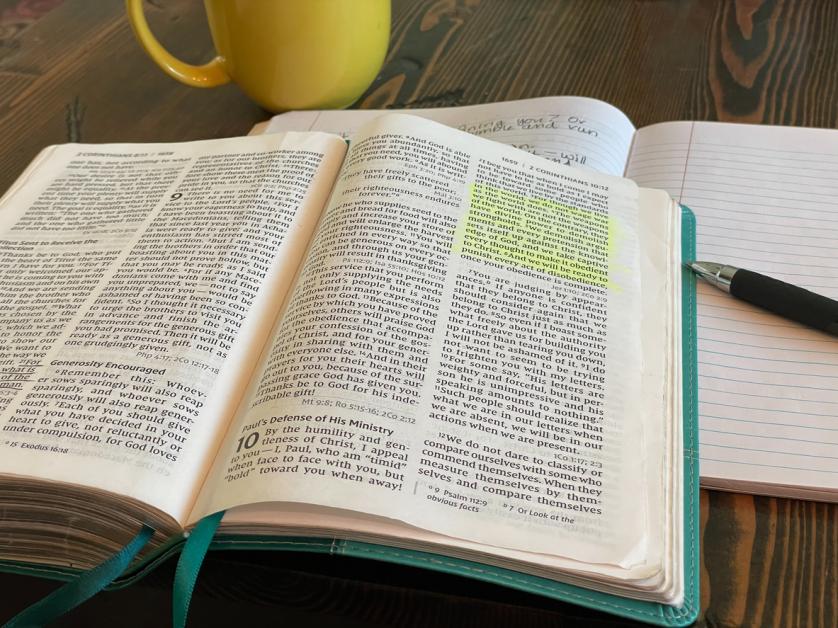Editors' Note: This article is part of the Patheos Public Square on Immigration and Refugees. Read other perspectives here.
It was 8th grade and I absolutely loved my English language class. Not only was it fun to talk in a language different from my native Danish, but the teacher loved engaging us in interactive discussions. She'd hold Show and Tell, a remnant of her own days living in California. One day, the topic was U.S. policy and a groan went throughout the classroom. None of us agreed with the Big Brother foreign policy of the United States, and I took the lead on the class's stance against what we all considered to be a policy of interference policy and global arrogance. Growing up on Westerns and Sylvester Stallone movies, I thought I knew all there was to know about the U.S., and I didn't find the country admirable.
Flash-forward to several years later. I was then living in Japan, an economically flourishing country. My newlywed husband and I had moved there after he received a fantastic scholarship that enabled him to leave his oppressive homeland of Syria for a country that had pulled itself out of the ruins after World War 2 and was now one of the leading countries in the world in research.
We loved it there.
People treated us like revered guests and although children stared at us as though we were aliens, the financial stipend and opportunities made it all worth it. Eventually, all of the foreign students got their PhDs and moved out of the country. Their decision to leave was simple, because why stay in a country that would never give you citizenship and your children would never be able to vote?
We were among the ones to leave, and our family ended up in the one place we never expected to move to: the United States. Our decision was heavily influenced by a two-week trip with our children to the States, where my husband and I fell in love with the American people.
It's really as simple as that.
My impression back then and now, twenty years later, hasn't really changed: Americans are on the whole polite, kind, and fun to be around. Opportunity lurks around the corner if you are honest and willing to work hard; all you need is determination and grit.
This was a major contrast to my perceptions of life in my home country, Denmark, where "Janteloven" dictated that "you shouldn't think you are anything special." Once I began wearing my religious symbol, the hijab, I was assumed to be a "lower class foreigner" and treated differently in public spaces. My father had reluctantly moved to Denmark after marrying my Danish mother abroad. I had grown up with his broken Danish accent, amidst smoked herring and Christmas with my grandparents every year.
I enjoyed hanging out with the children of the immigrants of the '70s — "invaders" as they were called in Danish — immigrants who came to do the manual labor that nobody else wanted, always thinking they were going back to their home country and never attempting to assimilate, not that there were any programs available to do so. That is, until they found themselves with children who had settled in the "Duck Pond" — children who had no intentions of ever leaving and whose Danish was native although they had darker skin and did not look Nordic. By the '90s, a severe right-wing nationalist party had established itself politically to counter this apparent "dilution" of what it meant to be native.
Apparently, knowing the culture, speaking the language, and being patriotic no longer were patriotic attributes — at least, not to the country that took the lead so many years ago of sheltering its non-Aryan citizens from persecution.
We forget and history repeats itself, even as time moves forward.
In the States, fitting in was never a concern for our family as immigrants. Sticking out was fine, and marching to our own drumbeat was easy enough, even when my children and I joined a local Minute Man reenactment group, showing proudly every spring how the U.S. liberated itself from England, dressed up in layers of clothing that, funnily enough, resemble the modest clothing of many Muslims. Culture is a fleeting experience; it should bond us and not divide us.
Our adopted country was a completely different experience. This nation, which chose to stand on its own legs and, during its relatively short lifetime, has refused to buckle under to xenophobia and intolerance, continues to make me proud and re-affirm my beliefs in its values and people. Our United States continues to offer opportunities and a home to its tired, its poor, to the huddled masses yearning to breathe free. We are a nation of immigrants.
We open our arms to well-vetted homeless and deserted refugees as they bring along their traumatized and hungry children, children hungry for safety and security, who end up working harder than anyone else, ensuring the opportunity for their tired parents to sit back and marvel over their decision to leave their own home country for that incredible taste of freedom and liberty.
We all know immigrants and their children who have not only made it big here, but also have become an integral part of the American tapestry, reminding us all how young our country is and how small the world really is. I have never regretted coming here, and I will never allow the country to be anything less than the land of opportunity and freedom for all, so help me God.
8/10/2016 4:00:00 AM




